Sleep apnea and anxiety are two common conditions that impact millions of people worldwide, often taking a heavy toll on overall well-being. At first glance, they might seem entirely unrelated, but emerging research points to a significant connection between the two. This link can create a challenging cycle, where the symptoms of one condition worsen those of the other, leaving individuals trapped in a loop of poor sleep and heightened stress.
Dr. Luke Bauserman of Better Sleep MOV provides valuable expertise in understanding and addressing this complex relationship. With his patient-focused approach, he highlights the importance of tackling both sleep apnea and anxiety together. By improving sleep quality and breaking the cycle of stress, individuals can not only sleep better but also experience improved mental and emotional health.
How Treating Sleep Apnea Can Ease Anxiety and Improve Your Well-Being
Treating sleep apnea can have a noticeable and lasting impact on reducing anxiety symptoms. When sleep is disrupted by sleep apnea, the body experiences heightened stress, which often fuels anxiety. By addressing the root cause of this disturbance, many people find relief from the exhausting cycle of poor sleep and heightened worry.
Comprehensive Care for Better Sleep and Reduced Anxiety
Dr. Luke Bauserman at Better Sleep MOV recognizes that effective care goes beyond one-size-fits-all solutions. His approach focuses on tailored treatment plans that address each patient’s unique needs, combining innovative therapies with holistic support. Some of these strategies include:
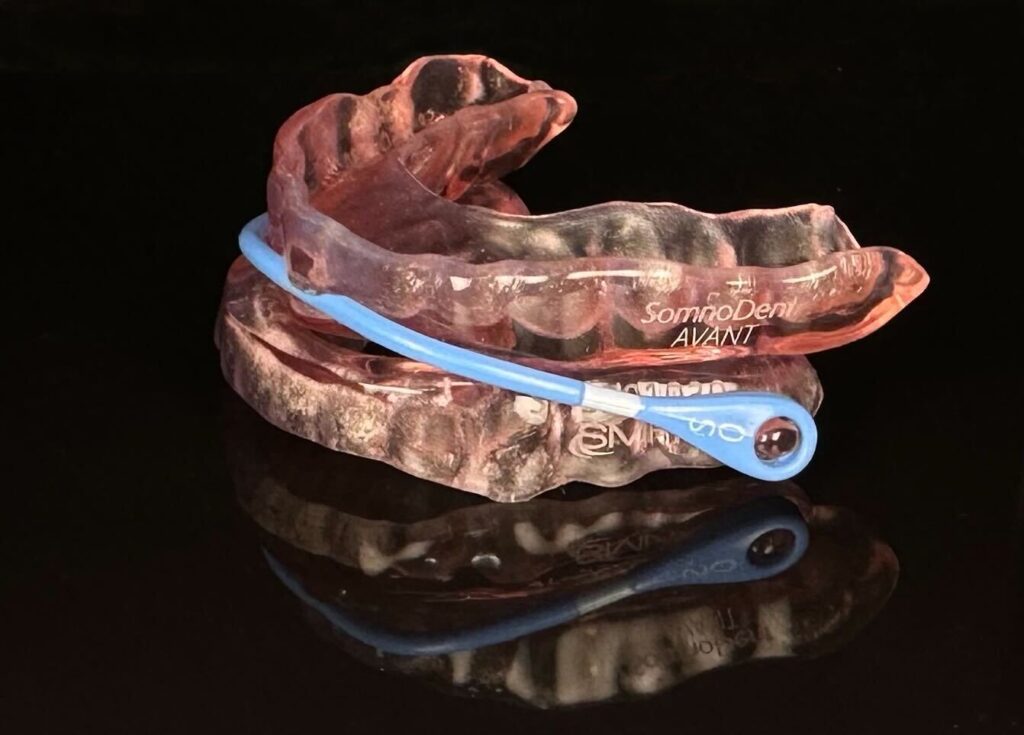
Oral Appliance Therapy
Custom-fitted oral appliances, such as mandibular advancement devices, are designed to gently keep the airway open during sleep. These devices help reduce breathing disruptions that aggravate anxiety while improving overall sleep quality.
Unlike CPAP machines, which some patients find intimidating or uncomfortable, oral appliances are small, quiet, and easy to use. By promoting restful sleep, oral appliance therapy helps the body recover and reduces anxiety symptoms, offering a path to both physical and emotional relief.
Counseling and Therapy
Mental health plays a crucial role in managing anxiety, and Better Sleep MOV frequently collaborates with local mental health professionals to provide additional support. Cognitive-behavioral therapy (CBT) is often recommended as part of the treatment plan, targeting the underlying thought patterns and behaviors that drive anxiety. This dual approach supports both physical and emotional well-being.
Lifestyle Modifications
Sustainable, everyday changes can make a significant difference in managing both sleep apnea and anxiety. Dr. Bauserman emphasizes the importance of practical adjustments such as:
- Maintaining a healthy weight
- Practicing good sleep hygiene (e.g., consistent bedtime routines, reducing screen time)
- Incorporating regular exercise and mindfulness-based stress reduction techniques
“Together, these strategies create a powerful synergy for improved health,” says Dr. Bauserman. “Many patients report feeling not only more rested but also calmer and better equipped to handle life’s challenges.”
By combining these comprehensive treatment approaches, Better Sleep MOV provides a pathway toward more restful nights and brighter days, breaking the cycle of sleep apnea and anxiety for lasting relief.
Is There a Relationship Between Anxiety and Sleep Apnea?
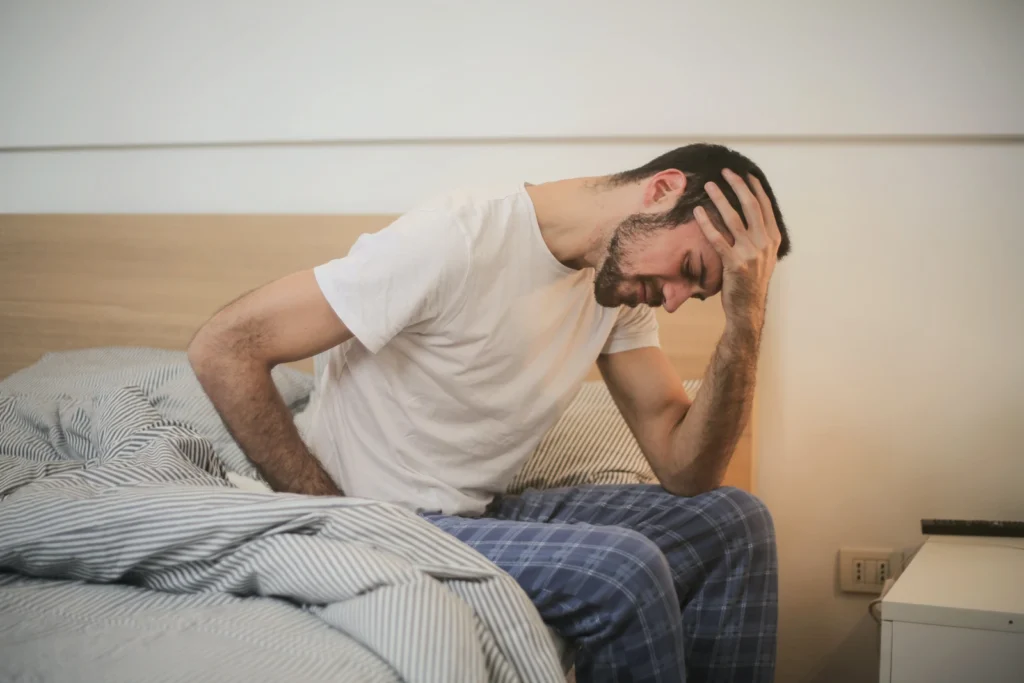
The relationship between sleep apnea and anxiety is well-documented, with research pointing to several overlapping factors.
How Sleep Apnea Contributes to Anxiety:
-
- Disrupted Sleep Phases: Sleep apnea interrupts natural sleep cycles, preventing the body from reaching the restorative deep sleep stages necessary for emotional regulation.
-
- Chronic Fatigue: Persistent tiredness caused by poor sleep can heighten stress and anxiety levels, creating a vicious cycle.
-
- Brain Chemical Imbalances: Abnormal levels of neurotransmitters related to sleep and mood regulation may further exacerbate anxiety.
Dr. Bauserman highlights the importance of treating both conditions together for optimal results. Neglecting one condition can undermine progress in managing the other.
Symptoms of Sleep Apnea-Related Anxiety
Sleep apnea and anxiety often share overlapping symptoms, making it challenging to differentiate between the two without proper evaluation.
Key Symptoms Identified by Dr. Bauserman:
Difficulty Falling or Staying Asleep:
-
- Anxiety can cause racing thoughts that interfere with sleep, while sleep apnea disrupts breathing, creating similar patterns of sleeplessness.
Persistent Fatigue:
-
- A lack of quality sleep leaves patients feeling drained, affecting daily functioning. Dr. Bauserman refers to this as a “double impact” on energy levels.
Mood Changes:
-
- Both conditions can lead to irritability, depression, and emotional instability.
Concentration Issues:
-
- Difficulty focusing and maintaining mental clarity are common complaints among patients with both conditions.
-
-
- Addressing sleep apnea often leads to improved cognitive function.
-
Can Sleep Apnea Cause Panic Attacks?
Yes, sleep apnea is strongly associated with panic attacks.
Why Does This Happen?
-
- Repeated breathing interruptions during sleep activate the body’s fight-or-flight response.
-
- Patients often experience feelings of suffocation or dreams of drowning, triggering acute anxiety and panic attacks.
These episodes can occur during sleep or upon waking, leaving patients feeling disoriented and fearful. Treating sleep apnea is a crucial step in breaking this cycle and reducing the frequency of panic attacks.
Can CPAP Machines Cause Anxiety?
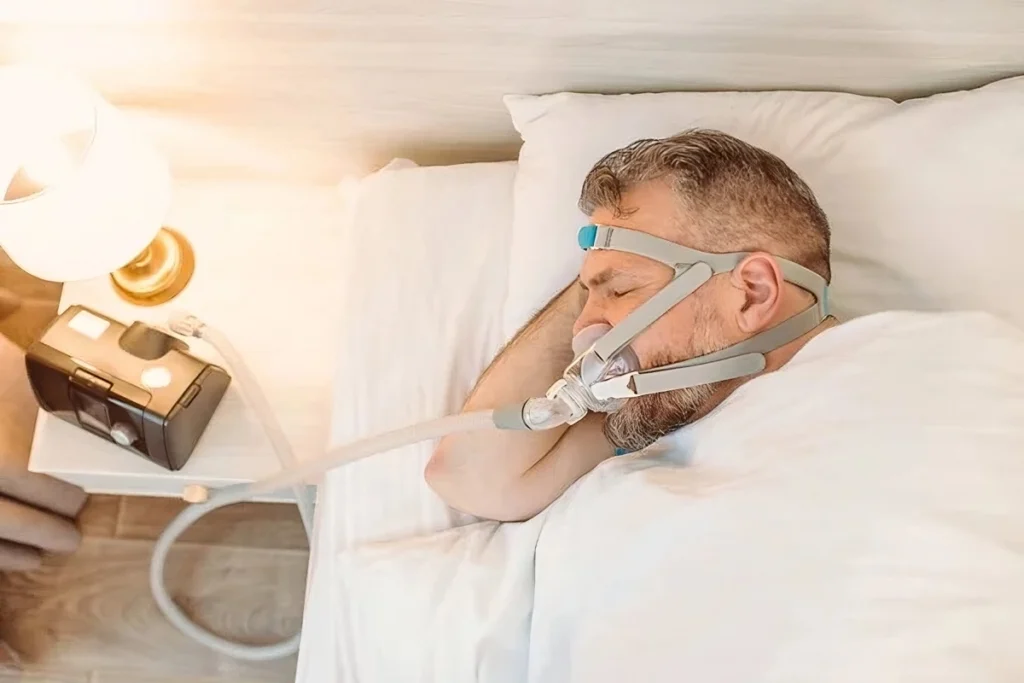
While CPAP (Continuous Positive Airway Pressure) machines are a common and effective treatment for sleep apnea, they can cause anxiety in some individuals.
Sources of CPAP-Related Anxiety:
-
- Claustrophobia: Wearing a mask that covers the nose and mouth can feel confining for some people.
-
- Machine Noise: The sound of the machine can be distracting or unsettling.
-
- Positive Air Pressure: The sensation of air being forced into the airway can feel uncomfortable or overwhelming, especially for first-time users.
Solutions to CPAP Anxiety:
Dr. Bauserman suggests exploring alternative treatments, such as oral appliance therapy, for patients who find CPAP machines intolerable. For those who wish to continue using CPAP, gradual acclimation and support from a sleep specialist can help ease anxiety.
Breaking the Cycle: Managing Both Conditions Simultaneously
Addressing sleep apnea and anxiety together requires a comprehensive and coordinated approach.
Steps to Break the Cycle:
Accurate Diagnosis:
-
- A thorough evaluation by a sleep specialist ensures the right treatment plan is developed for both conditions.
Combination Treatments:
-
- Pairing physical treatments (e.g., oral appliances) with psychological therapies (e.g., CBT) offers a holistic solution.
Lifestyle Adjustments:
-
- Implementing sustainable habits, such as regular exercise, stress management, and a consistent sleep schedule, supports long-term improvement.
Regular Follow-Ups:
-
- Ongoing monitoring ensures that treatments remain effective and adjustments are made as needed.
The Role of Better Sleep MOV
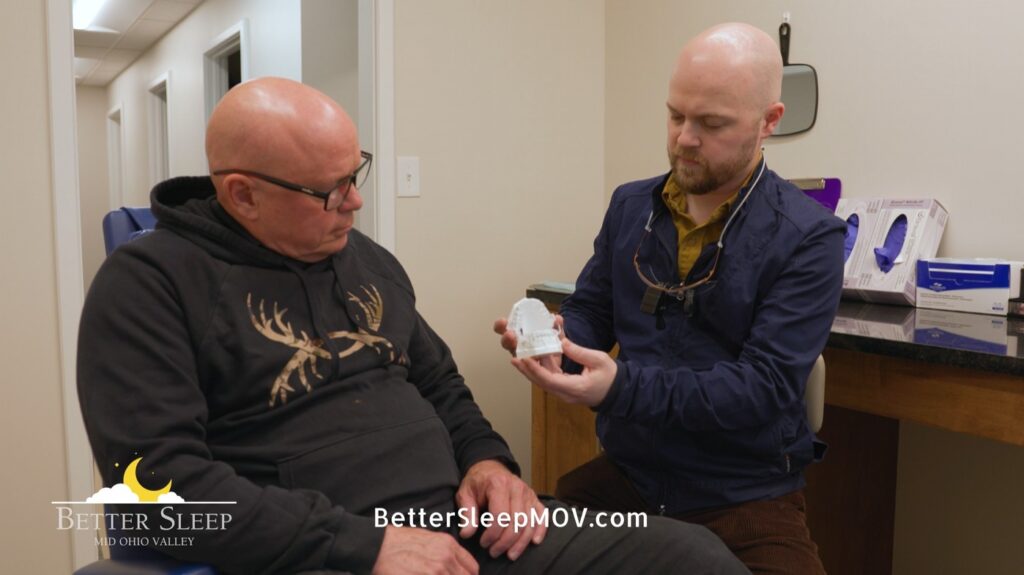
At Better Sleep MOV, Dr. Bauserman and his team specialize in addressing the complex interplay between sleep apnea and anxiety. By combining medical expertise with personalized care, they empower patients to take control of their health and well-being.
“When patients see improvements in both their sleep apnea and anxiety, it’s life-changing. That’s what we aim for every day,” says Dr. Bauserman.
Conclusion: Hope for a Restful Future
The connection between sleep apnea and anxiety is undeniable, but so is the potential for recovery. By addressing these conditions simultaneously through a combination of medical treatment, therapy, and lifestyle changes, patients can achieve better sleep, reduced anxiety, and improved quality of life.
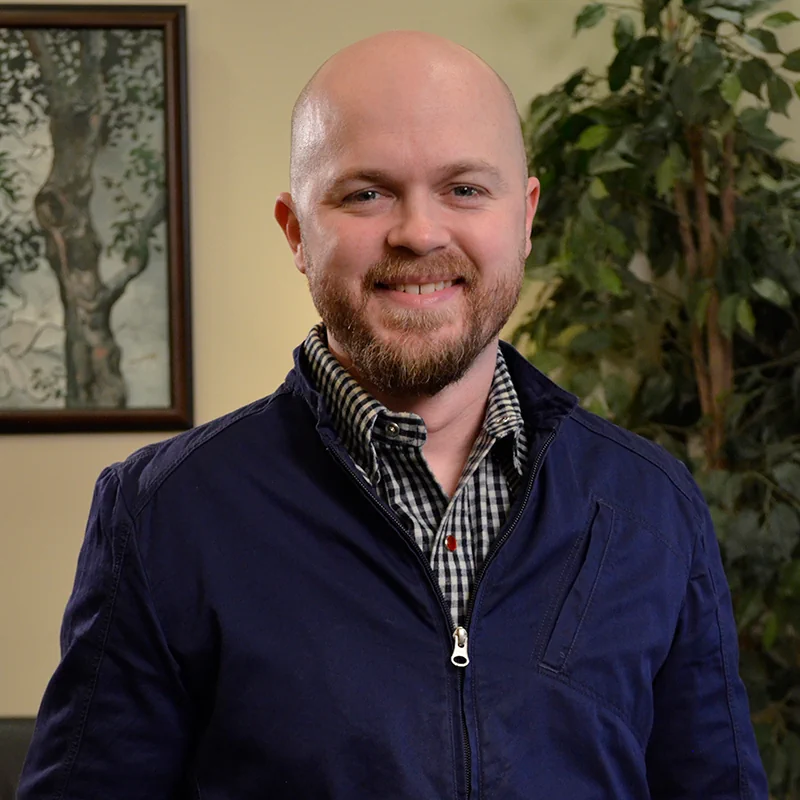
If you’re struggling with sleep apnea and anxiety, consult a specialist like Dr. Luke Bauserman at Better Sleep MOV. With the right approach, restful nights and calmer days are within reach.
